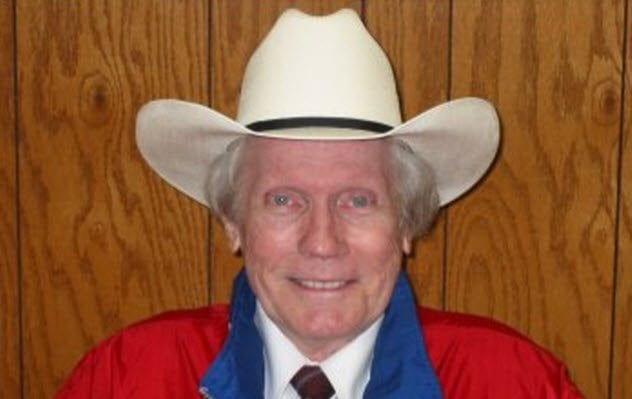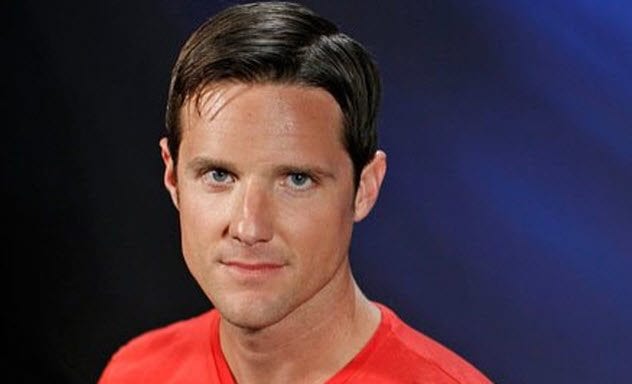 History
History  History
History  Health
Health 10 Everyday Activities That Secretly Alter Consciousness
 History
History Top 10 Historical Disasters Caused by Someone Calling in Sick
 Animals
Animals 10 New Shark Secrets That Recently Dropped
 Movies and TV
Movies and TV 10 Forgotten Realities of Early Live Television Broadcasts
 Technology
Technology 10 Stopgap Technologies That Became Industry Standards
 Weird Stuff
Weird Stuff 10 Wild Facts About Taxidermy That You Probably Didn’t Know
 Travel
Travel 10 Beautiful Travel Destinations (That Will Kill You)
 Miscellaneous
Miscellaneous 10 Modern Marriage Rituals Born from Corporate Branding
 Weird Stuff
Weird Stuff Ten Bizarre Visions of 2026 from Fiction
 History
History 10 “Modern” Problems with Surprising Historical Analogs
 Health
Health 10 Everyday Activities That Secretly Alter Consciousness
 History
History Top 10 Historical Disasters Caused by Someone Calling in Sick
Who's Behind Listverse?

Jamie Frater
Head Editor
Jamie founded Listverse due to an insatiable desire to share fascinating, obscure, and bizarre facts. He has been a guest speaker on numerous national radio and television stations and is a five time published author.
More About Us Animals
Animals 10 New Shark Secrets That Recently Dropped
 Movies and TV
Movies and TV 10 Forgotten Realities of Early Live Television Broadcasts
 Technology
Technology 10 Stopgap Technologies That Became Industry Standards
 Weird Stuff
Weird Stuff 10 Wild Facts About Taxidermy That You Probably Didn’t Know
 Travel
Travel 10 Beautiful Travel Destinations (That Will Kill You)
 Miscellaneous
Miscellaneous 10 Modern Marriage Rituals Born from Corporate Branding
 Weird Stuff
Weird Stuff Ten Bizarre Visions of 2026 from Fiction
10 Plot Twists To Major News Stories That Change The Whole Point
These days, everyone is informed. We’re experts on every international incident, up on every detail that makes the headlines until we get bored with it.
Once news stories have run their course, they tend to stop making the front page. Things keep happening, though, and the little details we miss can sometimes change everything.
10 The Al-Qaeda Anthrax Attack Wasn’t Al-Qaeda

One week after the 9/11 attacks, letters coated with anthrax spread throughout the US and killed five people. The letters were dated “09-11-01” and ended with the lines, “Death to America. Death to Israel. Allah is great.” We believed that Al-Qaeda was still attacking us and we needed to stay vigilant against the threat of Islamic terrorists from the Middle East.
As it turned out, Al-Qaeda had nothing to do with it. The terrorist was Bruce Ivins, a white Catholic from Ohio. Ivins was a microbiologist working for the US Army who had been hired to develop an anthrax vaccine. He had a history of mental illness and was described by colleagues as “an absolutely manic basket case” during his last few days of work.
The anthrax in the letters all came from a strand that only Ivins could have accessed. When the charges came against him, Ivins committed suicide.
9 The ‘Bath Salts Cannibal’ Never Used Bath Salts

In 2012, Randy Eugene attacked a homeless man, eating the man’s face off his still-living body and growling at police when they told him to stop. The news reported that Eugene had been high on a new drug called “bath salts.” The nation went into a panic as we learned that this dangerous drug could drive any man into a cannibalistic frenzy.
In reality, Eugene had never taken bath salts. Toxicology tests on his body found that marijuana was the only drug in his system. Police still have no idea why Eugene did it. After announcing that he had been on marijuana, authorities were forced to release a statement clarifying that “marijuana alone wasn’t likely to cause behavior as strange as Eugene’s.”
8 The Toyota Recall Wasn’t Toyota’s Fault

In 2009, some people who bought Toyota’s cars hit the brakes and started accelerating instead. There were some major accidents. Toyota was widely criticized for overwhelming negligence. They were a menace to public safety. They had no choice but to recall about five million vehicles already on the market.
It took about two years for the Department of Transportation to release its report on the cars. But when it did, the department found that there was “no evidence of brake failure or throttle malfunction.” Instead, the accidents were caused by “pedal misapplication”—meaning that the drivers hit the wrong pedal.
It wasn’t as simple as driver stupidity; they were just using the wrong floor mats. These mats were too big and could trap the accelerator pedal, making people accelerate when they wanted to brake. The cars were fine, and the floor mats that caused the problem had already been recalled in 2007.
7 The Faster-Than-Light Particle Was Just A Mismeasurement

In 2011, headlines were ablaze with news of a team of scientists who had created a particle that could travel faster than the speed of light. Their discovery flew in the face of Einstein’s theory of relativity and seemed like the first step toward the type of science-fictional travel that we’d only dreamed of. The world was amazed. These scientists had accomplished the impossible.
Which it was. Completely impossible.
A few months later, a less publicized announcement revealed that a loose cable had delayed their timing system. The faster-than-light measurement was just plain wrong.
Shortly after, the experiment was recreated. This time, the particle just moved at the speed of light. For good measure, the experiment was recreated four more times with the same results. The world-changing discovery was a mistake, and the team was so embarrassed that two of them resigned.
6 Paris Hilton Is Going To Inherit Next To Nothing

In her prime, Paris Hilton was a symbol of the hedonistic scourge of wealth. She was an heiress gone mad with the easy life of waiting to inherit a fortune, representing everything that is wrong with the unbridled children of the upper class.
Sometime after we stopped paying attention to her, though, her grandfather, Barron Hilton, dropped a surprise on the whole family. Fed up with their antics, he announced that he was going to donate 97 percent of his wealth to charity when he died.
All that money we imagined falling into Paris Hilton’s lap will actually be used to provide clean water in Africa, educate the blind, and house the mentally ill. The remaining chunk will be split among the entire Hilton clan, leaving nothing more than a sliver for the world’s most notorious heiress.
5 The Men Who Gave Their Lives At Fukushima Didn’t Die

When the Fukushima reactor was devastated by a tsunami, the area entered a doomsday scenario. There was a real possibility that this could turn into another Chernobyl unless something was done to keep things from getting worse.
Fifty brave men stayed inside the heavy radiation of the reactor, working to keep the problem from turning into a catastrophe. They suffered through extreme exposure, risking their lives to save others. Soon reports came out that some had succumbed to the radiation and died heroes’ deaths.
Which didn’t happen. They were fine.
According to the UN, there were “no clinically observable effects” of radiation exposure with the 50 men. Although they’d risked their lives, they had emerged with barely any negative effects.
The man in charge of the group died of cancer, but it had nothing to do with the reactor. Officials reported that it would have been impossible for him to get cancer through radiation exposure that quickly.
4 Fred Phelps Called An LGBT Organization ‘Good People’ Before Dying

Fred Phelps was the head of the Westboro Baptist Church, the people who picket funerals of dead soldiers with signs that say “God Hates Fags.” Phelps was, in short, one of the worst of people on Earth.
The key word being “was.” In his later years, Phelps went through a complete transformation. According to his grandson, it started when his wife’s death “triggered a chain reaction whereby he developed great empathy for others.”
Phelps put down his “God Hates Fags” signs and started supporting antisuicide and anti-bullying charities. He even called Equality House, an LGBT organization, “good people.”
Unfortunately, his newfound basic human decency didn’t spread far. The rest of the church excommunicated him. Phelps stayed with his newfound outlook, though, and died shortly after—meaning that, unbelievably, Fred Phelps just might be in Heaven.
3 The Kony 2012 Creator Had A Mental Breakdown

Jason Russell’s documentary about Ugandan warlord Joseph Kony went viral in 2012. In a single week, it received 100 million views and started an international activism campaign to bring forces against the warlord.
Shortly after, it brought a man to the law. Just not Joseph Kony. Kony had left Uganda years before the video was even made.
Jason Russell, though, broke under the stress of his newfound celebrity. He remembers thinking that he needed to catch a plane to New York and heading to the airport—and then nothing else. He didn’t go the airport. He stripped off his clothes and ran naked along the streets of San Diego, masturbating in front of people and attacking cars.
Russell ended up hospitalized and publicly shamed. On the other hand, Joseph Kony is fine. He still leads a child army and is largely unaffected by the video shared on Facebook.
2 The Sony Hack Probably Wasn’t North Korea

Sony was hacked in 2014. The image of a blazing skeleton showed up on all their computers with threats that there would be hell to pay if Seth Rogen’s The Interview ever made it to theaters.
The movie mocked North Korean leader Kim Jong Un, and it was quickly accepted that he was behind this. It was reported that North Korea had hacked into a US company or at least that US intelligence believed that North Korea was “centrally involved.”
However, many computer experts pointed out that there wasn’t much evidence to support this conclusion. Even the FBI didn’t want to say that North Korea was involved. Instead, there’s a good chance that this was the work of hacktivists who tried to cover their trail. The group had called themselves “Guardians of Peace” and had derided Sony’s security.
1 A Record Label That Sued Napster Also Invested In It

In its prime, Napster was the scourge of the music industry. They spread peer-to-peer file sharing in a way that the world had never seen, making music free and accessible to everyone. Napster also kept record sale profits from going to the artists and the labels.
Sony, EMI, Warner Bros., Universal, and the RIAA took Napster to court, taking the moral high ground that Napster’s service was theft. BMG sued Napster, too, but they weren’t too interested in the moral high ground.
BMG just wanted that Napster money. BMG bought a major stake in Napster while suing them and publicly vowed to bring Napster back with a fee attached after it was destroyed by lawsuits.








